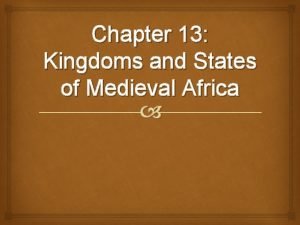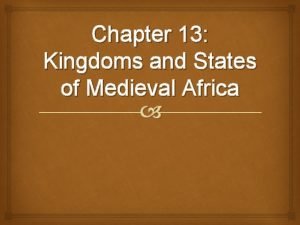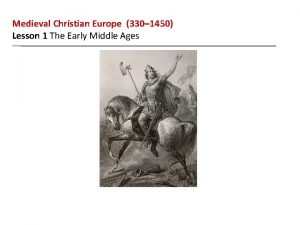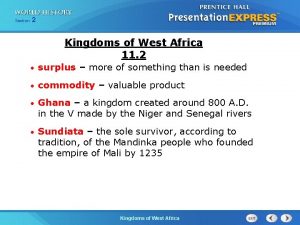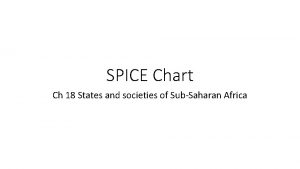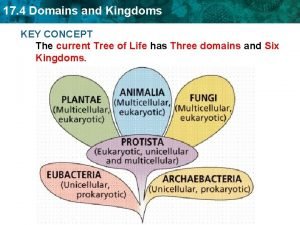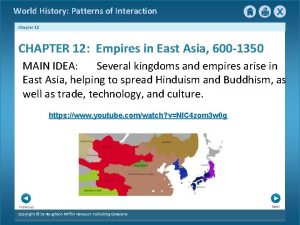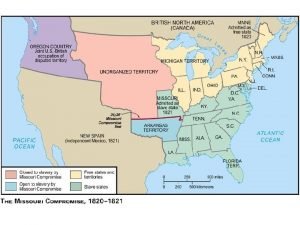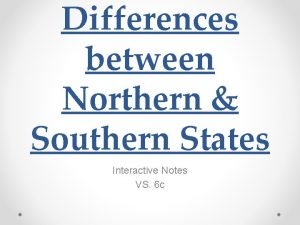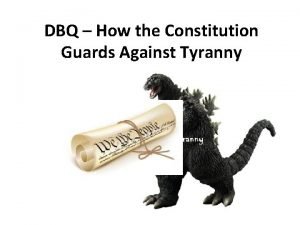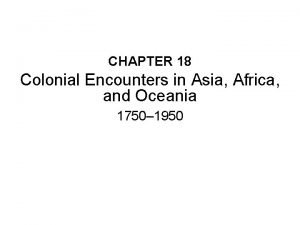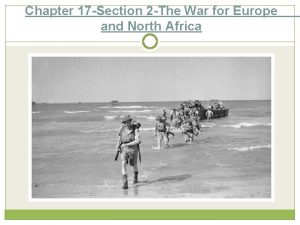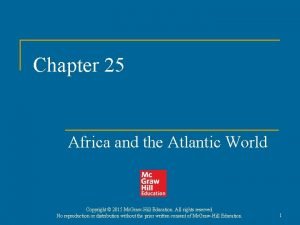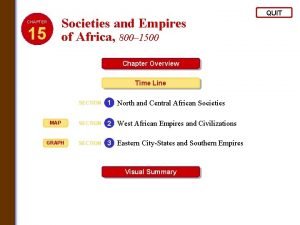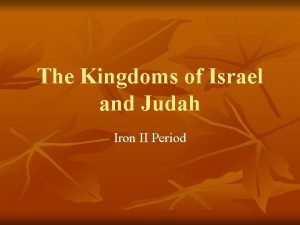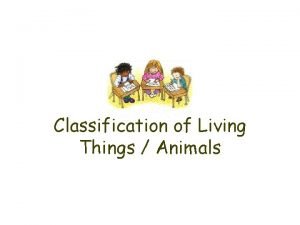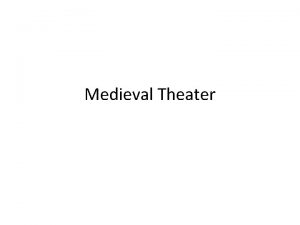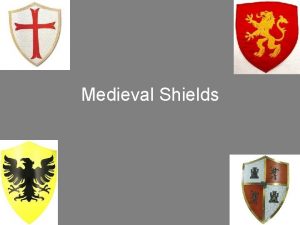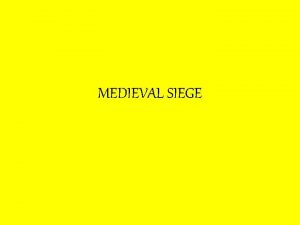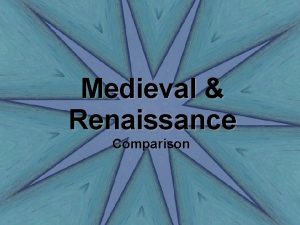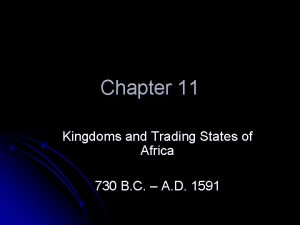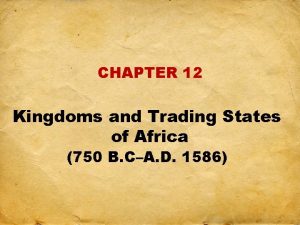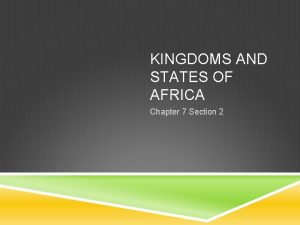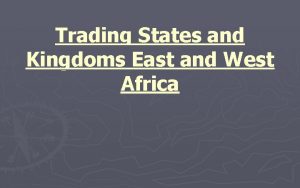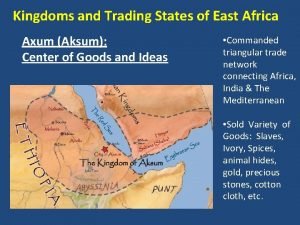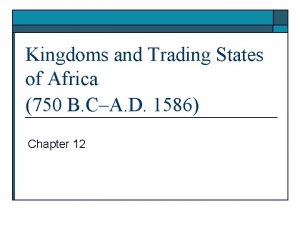Chapter 13 Kingdoms and States of Medieval Africa






















- Slides: 22

Chapter 13: Kingdoms and States of Medieval Africa

Geography of Africa • What is the geography of Africa like? • What are some positive aspects of Africa’s geography? • What are some negative aspects of Africa’s geography?

Impact of Geography Africa is the second largest continent Africa stretched 5, 000 miles north to south 3 different regions: North- Sahara Central- Green band of rain forests and tropical grassland South- Dry land

Impact of Geography Heavy rains near the equator Largest populations are concentrated where soils are fertile Savanna- broad grassland with small trees and shrubs There is not enough rainfall for farming or herding

African Society Three early societies: Ghana, Mali, Songhai The three societies had things in common: government, trade centers, towns had artisans of metal work, woodwork, potters, and other crafts Most African societies did not have written languages The language spoken throughout most of Africa was Swahili

Family and Lineage Most Africans lived in small villages Individual identity was determined by their membership in an extended family and lineage group Lived in extended families- parents, children, grandparents, other family dependents Lineage groups- an extended family unit that has combined into a larger community Matrilineal Patrilineal

Family and Lineage Power was shared among members of the community Decisions were made by consensus Elders were respected Independent villages organized by clans

Religious Beliefs Monotheistic Yoruba people of Nigeria- chief god sent his son Oduduwa down from heaven Ashanti people of Ghana believed in the supreme being Nyame Africans used rituals to communicate with the gods Diviners- a person who is believed to have the power to foretell events Importance placed on ancestors

Religious Beliefs Believed that the spirits of their departed ancestors were present on earth- animism Music and dance were for religious purposes Lyrics of songs conveyed religious traditions, folk legends, and historical information from one generation to another

Religious Beliefs African religious beliefs were challenged by Islam but not always replaced Islam came into northern Africa Islam was adapted through trade By 1400 s- most of the populations accepted Islam Christianity was adopted by Axum Muslims and Christians came into conflict


Role of Women were subordinate to men The value of a woman was in her ability to bear and raise children Women often worked in fields

The Role Government Early societies governments regulated trade Government had more power than private merchants To what degree do governments regulate or control economic markets?

Types of Government Free Market Economy- an economic system in which the means of production are largely privately owned and there is little or no government control over the markets Supply and Demand- the relationship between the amounts of an item that producers are able and willing to sell (supply) and the quantity that consumers can afford and wish to buy

Types of Governments Money Economy- an economic system based on money rather than barter Mercantilism- a set of principles that dominated economic thought in the 1600 s

Major Trade Route Move of goods all over the world Developed trade diasporas- networks of interconnected commercial communities living and working in major trade cities

Arab Trading Zone Across the Indian Ocean to Northern Africa Allowed trade between Asia and East Africa Trading centers developed Mogadishu and Great Zimbabwe thrived on trade across the Indian Ocean Muslim ports in Egypt- Cairo and Alexandria

East African Kingdoms Kush Grew out of the region that was known as Nubia, south of Egypt and Nubia traded ivory, leopard skins, and frankincense Assyrians defeated Kush because the Assyrians had superior technology

East African Kingdoms Axum Invaded and conquered Kush Axum came into conquered with Greek and Rome civilizations through missionaries and trade Adopted Christianity Trade Located along the Red Sea Weakened by civil war and declined

West African Kingdoms Gold and salt were important to trade Plenty of salt was found in the Sahara Very little salt found in savanna People of savanna traded gold to obtain salt West African kingdoms were ruled by powerful emperors

West African Kingdoms They had strong armies to maintain order and protect kingdoms Gold, ivory, and slaves moved north Metal ware, textiles, and salt carried south

 Lesson 2 kingdoms and states of africa
Lesson 2 kingdoms and states of africa Chapter 13 kingdoms and states of medieval africa
Chapter 13 kingdoms and states of medieval africa Medieval africa geography
Medieval africa geography Medieval kingdoms in europe lesson 1
Medieval kingdoms in europe lesson 1 How did the kingdoms of west africa develop and prosper
How did the kingdoms of west africa develop and prosper Mali spice chart
Mali spice chart Medieval africa geography
Medieval africa geography Chapter 17 section 3 domains and kingdoms answer key
Chapter 17 section 3 domains and kingdoms answer key Chapter 17 domains and kingdoms concept mapping answers
Chapter 17 domains and kingdoms concept mapping answers Chapter 12 section 5 kingdoms of southeast asia and korea
Chapter 12 section 5 kingdoms of southeast asia and korea 11 free states
11 free states Southern states of america
Southern states of america Big states vs small states guard against tyranny
Big states vs small states guard against tyranny Chapter 18 colonial encounters in asia and africa
Chapter 18 colonial encounters in asia and africa Chapter 17 section 2 the war for europe and north africa
Chapter 17 section 2 the war for europe and north africa The war for europe and north africa chapter 17 section 2
The war for europe and north africa chapter 17 section 2 Ap world history chapter 25 africa and the atlantic world
Ap world history chapter 25 africa and the atlantic world Chapter 15 societies and empires of africa
Chapter 15 societies and empires of africa Domains and kingdoms
Domains and kingdoms Kingdoms of israel and judah
Kingdoms of israel and judah Bacteria kingdom characteristics
Bacteria kingdom characteristics What are the 3 domains and 6 kingdoms of classification
What are the 3 domains and 6 kingdoms of classification Organizing lifes diversity
Organizing lifes diversity

